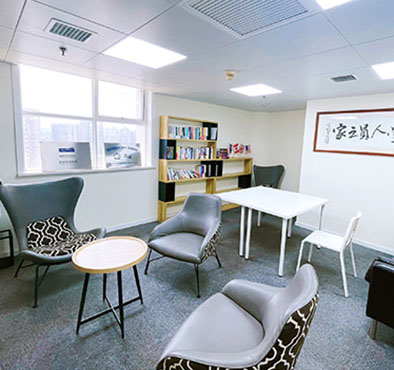西安雅思培训学校推荐
新东方语言培训学校:师资力量雄厚,课程体系完善,提供多样化的雅思课程,适合不同基础的学员。
朗阁教育:教学经验丰富,注重实战演练,课程内容实用性强,帮助学员进步成绩。
新航道国际教育:提供个性化的小班教学和全封闭学习模式,注重学员的个性化需求。
牛学教育:采用体验式教学,创新课程设计,注重培养学员的实际应用能力。
环球教育西安分校:强大的品牌影响力,专业的教学团队,课程内容全面。
学为贵西安校区:独特的“真经体系”教学法,帮助学员掌握的备考技巧。
启德教育:提供全面的留学服务和考试培训,课程设置科学,适合有留学需求的学员。
欧风小语种:专业的外语培训机构,教学质量高,提供个性化的学习方案。
思润培训:关注出国语言考试的系统研发,课程内容根据学员需求进行个性化调整。
知遇教育:专业的雅思培训,提供个性化学习方案,注重学员的备考效果。

雅思口语Part 3的讨论部分通常涉及一些较为抽象和深入的话题,这些问题旨在考察考生的逻辑思维、分析能力和语言表达能力。以下是一些常见的雅思口语Part 3问题类型和示例,帮助你在备考过程中更好地准备。
一、常见问题类型
观点类问题
这类问题要求考生表达自己的观点,并提供理由或例子。
示例:
“Do you think technology has changed people’s lives?”
“What do you think about the impact of social media on young people?”
“Do you think online education is better than traditional education?”
回答方法:
明确表达观点:“Yes, I definitely think technology has changed people’s lives in many ways.”
提供具体理由:“For example, smartphones have made communication much easier. We can now talk to people all over the world through video calls.”
比较类问题
这类问题要求考生比较两个或多个事物的优缺点、相似点或不同点。
示例:
“What are the advantages and disadvantages of remote work?”
“Do you think the advantages of online education outweigh its disadvantages?”
“What are the differences between city life and country life?”
回答方法:
使用连接词:“Firstly, remote work allows for more flexibility. However, it can also be isolating for some people.”
提供具体例子:“For example, many people find it hard to focus on their work because they are constantly interrupted by household chores.”
原因类问题
这类问题要求考生分析某个现象或问题的原因。
示例:
“Why do you think some people prefer to live in the city?”
“What are the main reasons for the increase in online shopping?”
“Why do you think social media has become so popular?”
回答方法:
提供多个原因:“One of the main reasons is the convenience. People can access a wide range of products from the comfort of their homes.”
使用连接词:“Another reason is the variety of options available. There are many different websites and platforms to choose from.”
影响类问题
这类问题要求考生分析某个现象或行为的影响。
示例:
“What are the effects of social media on young people’s mental health?”
“How do you think technology has impacted education?”
“What are the consequences of climate change?”
回答方法:
提供具体影响:“One of the main effects is that social media can lead to feelings of anxiety and low self-esteem. For example, many young people compare themselves to others online.”
使用连接词:“Additionally, it can also lead to a lack of face-to-face interaction, which is important for developing social skills.”
建议类问题
这类问题要求考生提出解决方案或建议。
示例:
“What can be done to reduce the negative effects of social media on young people?”
“How can companies encourage their employees to work more efficiently from home?”
“What measures can be taken to reduce pollution?”
回答方法:
提出具体建议:“One suggestion is to limit the amount of time young people spend on social media. Parents and schools can play a role in this.”
使用连接词:“Another suggestion is to promote more positive content on social media platforms.”
预测类问题
这类问题要求考生对某个现象或趋势进行预测。
示例:
“What do you think the future of online education will be like?”
“How do you think technology will change our lives in the next 10 years?”
“What do you think will happen to traditional retail stores in the future?”
回答方法:
提出合理预测:“I think online education will become even more popular in the future. With advancements in technology, it will become more interactive and engaging.”
提供支持理由:“For example, virtual reality and augmented reality can be used to create immersive learning experiences.”
二、练习方法
熟悉常见话题:
在备考阶段,熟悉雅思口语Part 3的常见话题,如教育、科技、社会、环境、健康等。提前准备一些相关问题的回答框架。
示例:常见的Part 3话题包括教育、科技、社会、环境等。提前准备一些相关问题的回答框架。
积累常用表达:
学习并积累一些常用的口语表达和短语,尤其是与常见话题相关的表达。这些表达可以帮助你更自然地回答问题。
示例:积累描述观点的表达,如“I believe that...”“In my opinion...”“One of the main reasons is...”。
模拟练习:
找一个语言伙伴或外教进行模拟对话练习,让他们提出各种问题,练习反应和回答。
示例:每周进行1-2次模拟对话,每次练习15-20分钟。
记录与回听:
用手机或录音设备记录自己的练习,回听时注意自己是否抓住了关键词,回答是否流利和准确。
示例:记录自己回答问题的过程,回听时注意是否在短时间内开始回答。
总结错误:
每次练习后,总结自己是否反应并给出合理的回答,分析错误原因并改进。
示例:如果发现某个问题没有反应,分析原因并重新练习。
三、总结
雅思口语Part 3的讨论部分涉及多种类型的问题,包括观点类、比较类、原因类、影响类、建议类和预测类。通过熟悉常见话题、积累常用表达、练习反应、模拟练习、记录与回听以及总结错误,你可以更有效地应对Part 3的问题,展示你的语言能力和思维深度。记住,练习是提高这些技能的关键,因此在备考过程中,多进行模拟对话练习,逐步提高你的反应速度和表达能力。

















